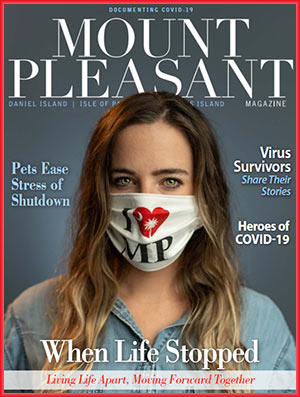 By 6:30 p.m. my wife is on the road headed to work her night shift at the hospital’s intensive care unit. Right about the time I turn on Netflix with a pepperoni pizza, she hits the ground running. She takes a report from a fellow nurse on a patient who is on life support, fresh from the operating room, or on a ventilator. Every shift is different, yet it’s always the same: Every night, every minute of every shift, she is responsible for saving lives.
By 6:30 p.m. my wife is on the road headed to work her night shift at the hospital’s intensive care unit. Right about the time I turn on Netflix with a pepperoni pizza, she hits the ground running. She takes a report from a fellow nurse on a patient who is on life support, fresh from the operating room, or on a ventilator. Every shift is different, yet it’s always the same: Every night, every minute of every shift, she is responsible for saving lives.
The ICU is a frantic environment. It could be likened to the front lines of war. She monitors vital signs, performs CPR, and checks pupils and pulses all while simultaneously explaining what she is doing to her patients’ loved ones.
Nurses don’t have the opportunity to create their own schedules while at work. Their every second is specifically dictated by the needs of the patients for whom they are caring. Forget a meal; during 12-hour shifts they often don’t have time to drink water or eat a power bar. Most nights, nurses don’t have time to sit down. A running joke is that every nurse has shin splints and plantar fasciitis. It doesn’t seem that funny to me.
In addition to providing care, nurses are also the primary communication line to the patients’ loved ones. Explaining chest compressions to a concerned parent while performing them on their child is simply an unexplainable skill. No medical knowledge or years of schooling could prepare a nurse for having to tell a mother that her child is not going to make it. Nurses are human, which means part of their job is to console, hug or cry with a heart-broken parent. Sometimes removing emotions from a job like this is impossible.
My wife returns home from work at 8:30 a.m., marking a 14-hour night shift in which she successfully helped keep one of her patients alive. Before she leaves the hospital, she gives her report to another nurse who will now be charged with the responsibility of holding that patient’s life in her hands.
As she walks through the door, we embrace and discuss the night. Rarely does she cry, but this night really got to her.
Over the last five years, my wife has been taking care of the same patient on and off since she was born. Every few weeks a chronic lung disease forces her patient and her family return to the ICU. Needless to say, she looks at my wife as part of her family. Last night my wife and her team desperately fought to keep oxygen in her patient’s lungs. Seeing the life slip away from a child she has grown to love was a helpless feeling for my wife. That morning the best thing I could do was offer a shoulder to cry on.
That morning’s embrace and the struggles from the night before took place over a year ago.
Unlike many of us, I never needed the coronavirus to acknowledge that nurses are heroes. They’ve always been fighting on the front lines for us. Sure, the age of COVID-19 has brought forth new challenges, but nurses are built to prevail and succeed in the face of uncertainty. Whether it’s in the ICU or at your primary care office, nurses are the backbone of our medical community. They are the engine that will drive us through the COVID-19 barrier and any other obstacles that our world should face.
Certainly, being the spouse of a nurse gives me a unique insight and empathy for nurses. My invitation is that when normality resumes and COVID-19 is a distant memory, let’s not forget that nurses are our medical heroes and let’s continue to value and praise their successes and accomplishments.


Leave a Reply